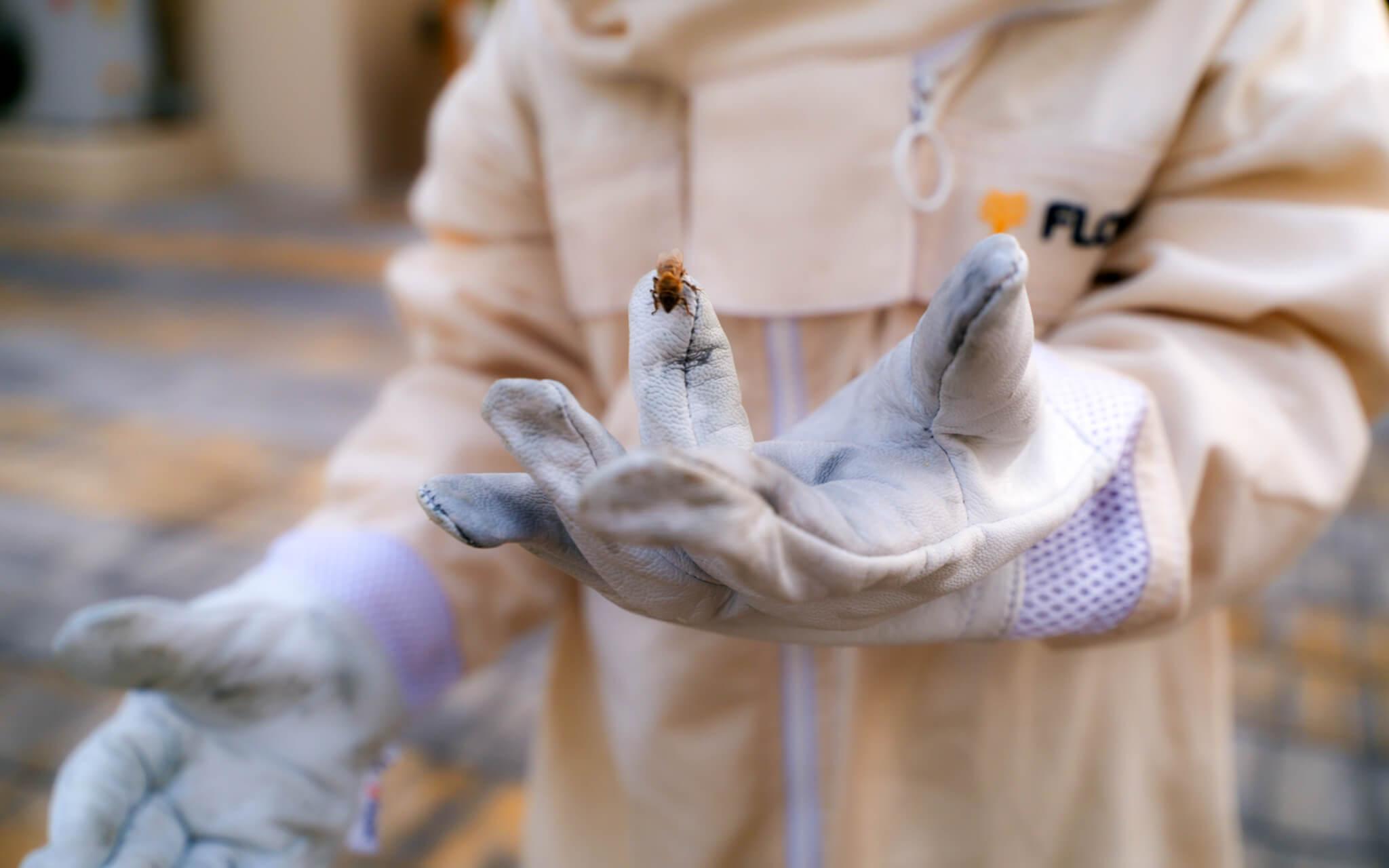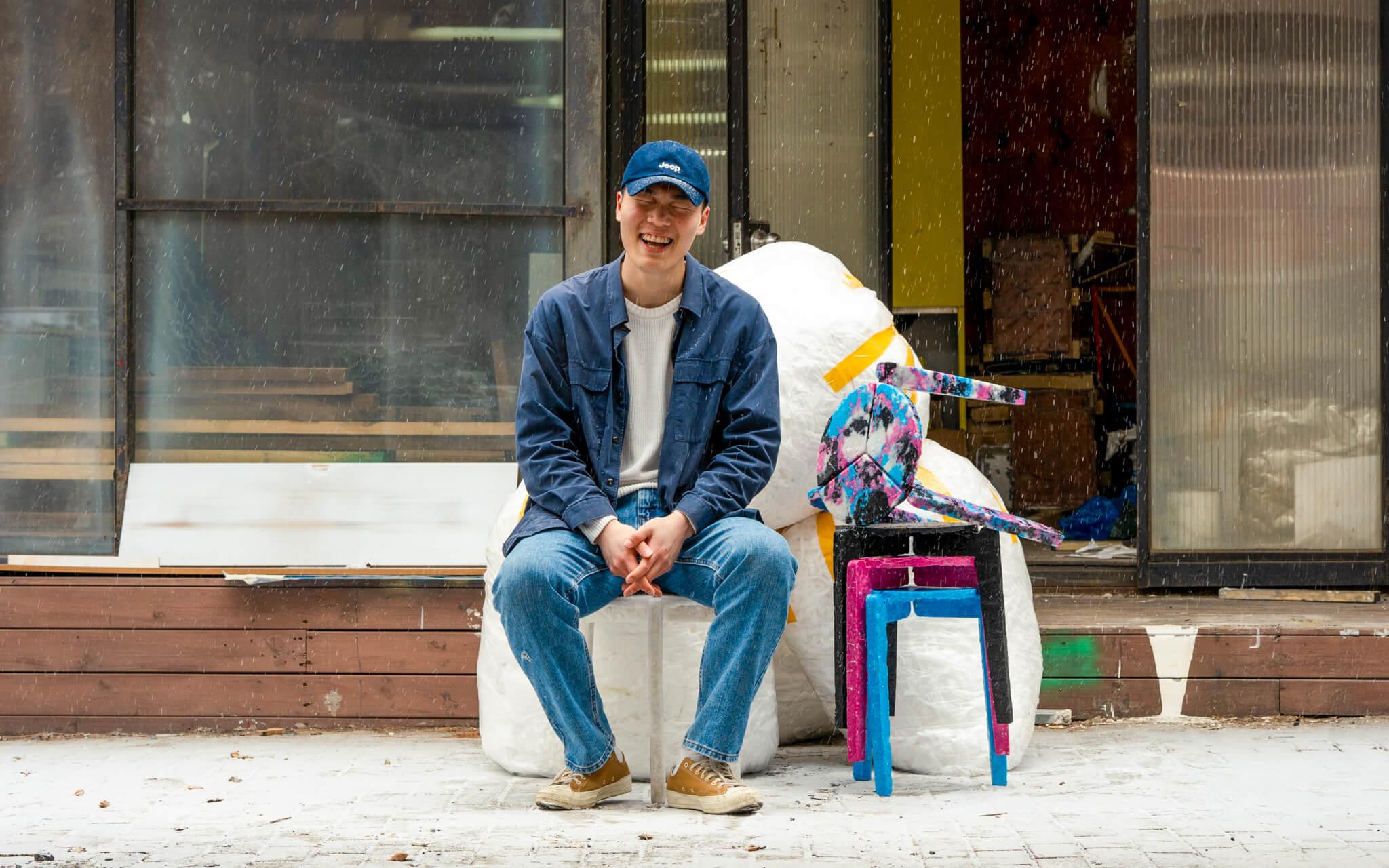The Revival of Kantamanto Market
In the heart of Accra, Ghana, Kantamanto Market’s overflowing stalls buckle under the weight of secondhand clothing from the Global North. It’s here that Yayra Agbofah, founder of The Revival, fights to untangle the threads of a textile waste nightmare.
Picture your discarded clothes, thoughtfully donated or recycled, only to wind up transported across oceans, suffocating local communities in an avalanche of waste. Our choices contribute to an environmental catastrophe that ravages ecosystems and shatters lives in faraway countries.
"The Revival's mission is to tackle the textile waste crisis imposed on Ghana and West Africa involuntarily," Yayra Agbofah states firmly, his passion for change evident through the screen of our video call.
Fashion was ingrained in Yayra from a young age. Growing up in Accra with little financial access, he would frequent Kantamanto, the largest secondhand market in Ghana, to buy clothes he couldn't afford otherwise. As a teenager, he became a stylish influencer, using Facebook to demonstrate to the community how to be fashionable with limited resources.
Yayra’s roots lie deep in Kantamanto; after spending two decades working as a trader, he knows only too well the challenges and setbacks.
The market is a sprawling 24-acre maze of stalls pulsing with the energy of over 30,000 traders. With 15 million garments arriving weekly and up to 40% having to be discarded, it is a place where circularity is not only highly necessary but championed. Resourcefulness and creativity are weapons against the chokehold of the Global North's fast fashion addiction.
In 2012, Yayra witnessed the devastating reality of textile waste. "I was furious. I stood looking up at a 30-foot mountain of discarded clothing," he recounts, describing the landfill bordering the market. "It stands over a lagoon that feeds into the ocean. When the rain comes, the waste is pushed out into the sea."
The consequences are catastrophic.
"Textile waste is poisoning our environment, contaminating our soil, and destroying beautiful communities," Yayra laments, his voice heavy with sorrow. Clogged waterways breed disease, while the air is tainted with the stench of rotting fabric.
But how does this waste end up in Ghana? The answer lies in a twisted global supply chain. "Unwanted clothes are discarded, donated, or supposedly recycled. But much of it ends up in the hands of profiteers who ship it to secondhand markets like Kantamanto," Yayra explains, his frustration palpable. Unsorted, often unusable, these bales of clothing arrive in Ghana, where traders bear the burden of this waste.
"Everyone profits, from the collectors to the importers to the government," Yayra points out passionately. "But the traders suffer the most."
I was furious. I stood looking up at a 30-foot mountain of discarded clothing. It stands over a lagoon that feeds into the ocean. When the rain comes, the waste is pushed out into the sea.
Driven by this injustice, Yayra founded The Revival in 2016, employing local craftsmen and students to create art and fashionable outfits from textile waste. Other projects include online courses, collaborations with universities and workshops. They even create protective farm uniforms from denim waste, another example of how Yayra provides sustainable livelihoods.
Yarya believes in changing our perception of textiles and consumption. "Let's not see it as waste, but as an opportunity to develop and improve our economy and infrastructure, create jobs and changemakers. Let's boost creativity through upcycling," he says.
However, while The Revival makes a tangible impact, funding remains a challenge. “We're struggling to execute projects," Yayra shares. He tirelessly seeks support, but shockingly, fast fashion companies haven't stepped up to help solve the problems they've created.
Despite these difficulties, The Revival has rescued one million garments from landfills and empowered traders with mending and upcycling skills. "The people we've trained are now entrepreneurs, running their own upcycling businesses," Yayra shares proudly. Yayra tells of David Donko, a trader who lost his stall in a fire. After receiving training from Yayra, David now runs a successful upcycling business called Lifestyle Denim, creating clothing for Ghanaian celebrities.
But for Yayra, Kantamanto’s women fuel his commitment. "The market is 75% women,” he explains, his voice softening. "When I see their faces light up at my arrival, it pushes me to fight for a better future for them."


For those caught in the cycle of overconsumption, Yayra’s message is urgent: "Your choices have an unimaginable impact on communities and environments far beyond your own. Before throwing anything away, think about the repercussions."
The Revival weaves a tapestry of sustainability as Yayra dreams of a future built on global collaboration, groundbreaking innovation, and transformative policies. He envisions an oasis of knowledge-sharing and problem-solving, where the threads of change are spun into a fabric of hope.
In Yayra Agbofah, we find a courageous and creative visionary determined to shift mindsets and practices. "I want to make this world a better place. It’s what drives me and I'm not stopping," he vows.
In a world suffocating under the weight of fast fashion's cast-offs, Yayra's story is a beacon of hope, reminding us that change is within reach. And as Kantamanto Market thrums with possibility, we see that in visionaries like Yayra, even the most tangled threads can be woven into something beautiful.
Most Popular
The Climate Tribe delivers stories about Biodiversity and Conservation, Circular Economy, Food and Water , and how they intersect with climate.
Subscribe
Get the latest stories inspiring climate action around the globe straight to your inbox.






